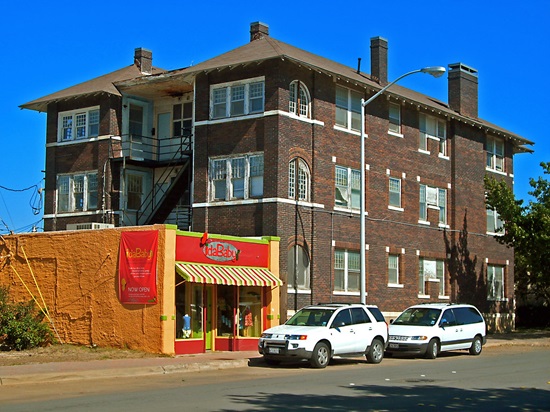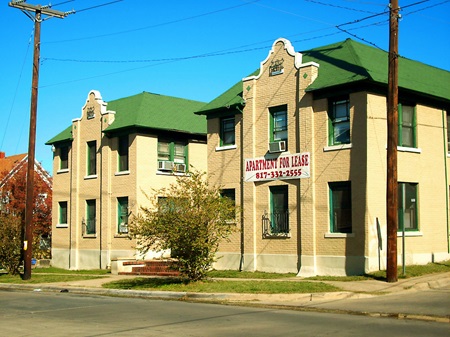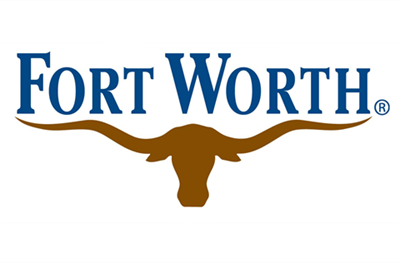
Fast, affordable Internet access for all.

Fort Worth, Texas, (est pop. 956,000) has struck a $7.5 million, 34-year contract with Dallas-based Sprocket Networks to construct a new 300-mile fiber optic backbone to shore up city municipal communications needs, expand affordable access to marginalized neighborhoods, and boost local economic development.
City officials say construction crews are expected to begin work sometime in the next three to six months, with the full network construction expected to cost $65 million and take three years to complete.
Services will first be made available to nine target neighborhoods (including Las Vegas Trail, Como, Marine Creek, Stop Six, Rosemont and Ash Crescent) on a rolling basis. Sprocket Networks will own the finished fiber network.
“This partnership was entered into with Sprocket with the hopes of eventually getting to universal service in Fort Worth,” Fort Worth IT Solutions director Kevin Gunn told ILSR in a phone interview. “We want the gold standard fiber optic connectivity: 100 megabits symmetric and up available at every doorstep, whether that's a senior family, multifamily or commercial.”
Gunn told ILSR that the city’s initial payment of $7.5 million to Sprocket consists of $4.5 million in American Rescue Plan Act (ARPA) funds, and $3 million from the North Central Texas Council Of Governments, which has allocated some of its transportation budget to broadband improvements the agency will benefit from.
In response to COVID era broadband inequities, the city of Fort Worth last year expanded free Wi-Fi access to 40,000 largely underserved city residents. Gunn indicated that those connections will be slowly phased out as the city transitions to fiber.

“We have contractually required them to go into nine neighborhoods,” Gunn said. “Five of the neighborhoods where we installed Wi-Fi networks as a kind of emergency response for the COVID pandemic, and then four other neighborhoods that we’ll identify together for them to go in and serve our underserved and unserved community.”
All told, the city’s partnership with Sprocket should deliver affordable access to roughly 20,000 locations across all nine neighborhoods, though the city’s ultimate goal is universal access.
According to the Sprocket website, the company provides residential customers in nearby Dallas a symmetrical 300 megabit per second (Mbps) fiber tier for $45 a month, as well as a symmetrical gigabit offering for $50 a month, well below the market standard.
Fort Worth’s contract with Sprocket requires they provide an entry-level 100 Mbps tier for $30 a month, the cost of which will be free for low-income city residents once Affordable Connectivity Plan (ACP) discounts are applied (assuming the program’s funding gets another Congressional appropriation as the $14.2 billion fund is currently on track to be depleted by Spring 2024). The city’s RFP indicates that 26.8% of Fort Worth households should qualify for the ACP.
Smart City Infrastructure Advantage, Lower Municipal Operating Costs
Gunn told ILSR that Fort Worth’s plan is a three-pronged effort focusing on shoring up access to marginalized populations, improving and lowering the cost of local government communications needs, and improving overall regional access in a bid to spur economic development.
“If you're wanting to connect to Tier 1 internet from Fort Worth, you have to go 40 miles east to Dallas,” he said. “That’s a capital cost up front if you're wanting to build a data center in Fort Worth. So Sprocket is bringing peering and cross connect opportunities to Fort Worth as part of this project.”

At the same time, the city notes the agreement with Sprocket will improve government fiber access at the 224 facilities managed by the city, while lowering the cost to Fort Worth taxpayers. Dunn says some of the money saved from having direct access to dark fiber will go towards paying off the network’s $65 million price tag.
“We're going to lock in our recurring costs at today's level, and we see that as a benefit for the government,” Dunn said. “It's also going to provide the foundation for all of our smart cities efforts as we deploy sensors for police protection, traffic and mobility management, stormwater monitoring, street lighting and illumination, and all sorts of smart cities plans that we have to make our operations more efficient.”
Lack Of Competition Means A Lack Of Options, Especially For Low Income Residents
Fort Worth is primarily dominated by regional monopolies AT&T and Charter (Spectrum), who don’t try very hard to compete on price, speed, or availability, leaving significant swaths of the city without affordable next-generation broadband access.
Data from the U.S. Census American Community Survey indicates that 17% of Fort Worth lack access to high-speed internet and 8% have no internet access at all, either due to affordability issues or spotty availability. Census data indicates that 14.5% of Fort Worth households have median incomes below the poverty level.

“Part of our rationale for taking this approach is that we've got portions of the city which have not had continued investment by the incumbent providers,” Dunn said. “We want universal service coverage in our community. But even for people who have providers, we want competition to keep prices low and make sure that it's affordable to have high quality broadband at home.”
Fort Worth settled on striking a public private partnership (PPP) in part thanks to the state’s counterproductive restrictions on community-owned broadband networks. The state law, ghostwritten by industry giants like AT&T, does not impose a strict blanket ban on all municipal broadband operations, but was crafted with an eye on making community-owned broadband networks more logistically and financially untenable.
ILSR discussed the specific problems and complexities with Texas’ municipal broadband restrictions in episode 326 of the Community Broadband Bits Podcast. Several Texas cities, including Pharr and Mont Belvieu, have still managed to successfully navigate the restrictions thanks to some ambiguous language embedded in Texas state law and the state utilities code.
Texas is poised to receive more than $3.3 billion in federal subsidies courtesy of the BEAD (Broadband Equity Access And Deployment) program embedded in the 2021 infrastructure bill. Texas Senators Ted Cruz and John Cornyn both voted against the bill, yet have still attempted to take credit for the resulting subsidies.
In addition, Texas voters approved Proposition 8 during the recent elections, which authorizes the creation of an additional $1.5 billion broadband infrastructure fund “to expand high-speed broadband access and assist in the financing of connectivity projects."
Collectively, this funding could prove transformative for residents of the Lone Star state long stuck on the wrong side of the digital divide. Fort Worth, which is finalizing the network design and will soon mobilize construction, is one of countless municipalities both in Texas and across the nation looking to take full advantage of historic federal investments in new broadband infrastructure.
Header image of Fort Worth Stockyards courtesy of Wikimedia Commons, Attribution-ShareAlike 4.0 International
Inline image of the Dunn Haven Apartments on Magnolia Ave courtesy of Flickr user Steven Martin, Attribution-NonCommercial-NoDerivs 2.0 Generic
Inline image of South Side apartment building courtesy of Flickr user Steven Martin, Attribution-NonCommercial-NoDerivs 2.0 Generic
